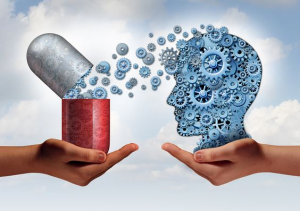Biotechnology in Medicine Benefits
Biotechnology, a meld of biology and technology, has proven to be a game-changer in medicine. It has redefined how we diagnose, treat, and prevent diseases, bringing many benefits to healthcare and, ultimately, to patients worldwide. Biotechnology, a cutting-edge field at the intersection of science and technology, has revolutionized various industries, and one of its most profound impacts has been in medicine. Biotechnology has become an invaluable tool in modern medicine with its potential to manipulate biological systems to improve human health.
Historical Perspective
The roots of biotechnology in medicine can be traced back centuries, but significant advancements began in the 20th century. The discovery of antibiotics like penicillin marked the early triumphs of biotechnology in healthcare, paving the way for many life-saving medications. For more information visit our website techfuses.com
Applications of Biotechnology in Medicine
Drug Development and Pharmaceuticals
Biotechnology has catalyzed a transformative evolution in drug development and pharmaceuticals. It’s reshaping how drugs are discovered, designed, and manufactured, leading to breakthroughs that impact the lives of millions.
Medical Imaging and Diagnostics
Advancements in biotechnology have enhanced medical imaging, enabling earlier and more accurate diagnoses through techniques like MRI and CT scans.
Gene Therapy and Genetic Engineering
Gene therapy and genetic engineering represent cutting-edge branches of medical science that have the potential to revolutionize healthcare. These fields offer promising solutions for treating various congenital and acquired diseases by harnessing the power of genes and genetic information.
Regenerative Medicine and Tissue Engineering
Regenerative medicine and tissue engineering are at the forefront of medical innovation, offering the potential to revolutionize treatments for various diseases and injuries. These fields, driven by biotechnology, aim to restore, replace, or regenerate damaged cells, tissues, or organs within the human body.
Vaccines and Preventive Medicine
Vaccines and preventive medicine are crucial cornerstones of public health, aiming to protect individuals and communities from various diseases. Biotechnology has significantly advanced these fields, allowing for more effective vaccines and personalized preventive strategies.
Advantages of Biotechnology in Medicine
Enhanced Treatment Options
Personalized medicine has revolutionized healthcare by amplifying treatment options for individuals based on their unique genetic makeup, medical history, and lifestyle. This innovative approach acknowledges that no two patients are the same; thus, their treatments shouldn’t be either.
Personalized Medicine
Personalized medicine, often called precision medicine, represents a groundbreaking approach to healthcare. Unlike the traditional one-size-fits-all model, personalized medicine recognizes that each patient is unique, and their healthcare should reflect this individuality. This transformative approach leverages biotechnology, genetics, and data science advances to tailor medical care to each patient’s needs.
Improved Disease Detection and Diagnosis
Biotechnology has revolutionized disease detection and diagnosis in medicine by allowing early identification of diseases, often before symptoms appear. Advanced techniques and sensitive diagnostic tests enabled by biotechnology provide unparalleled precision and accuracy, crucial for effective treatment planning. Additionally, biotechnology is pivotal in genetic screening, empowering individuals and families to understand their genetic predispositions and make informed decisions about their health and well-being.
Progress in Healthcare Research
By providing insights at the molecular level, biotechnology is propelling healthcare research and fostering a deeper understanding of diseases and potential treatments.
Ethical and Social Considerations
Ethical Implications of Biotechnological Advancements
As biotechnology evolves, ethical questions concerning its applications and potential consequences must be carefully addressed to ensure responsible use.
Public Perception and Acceptance
Public understanding and acceptance of biotechnological advancements influence their integration into healthcare systems and society.

The Future of Biotechnology in Medicine
Advanced Cancer Treatments
Cancer has been a longstanding challenge in the medical field. However, the future of biotechnology offers tremendous promise in revolutionizing cancer treatments. Immunotherapies, a cancer treatment that utilizes the body’s immune system to fight cancer cells, are gaining traction. Biotechnology is instrumental in developing and optimizing these therapies, potentially turning certain cancers into manageable chronic conditions.
Targeted therapies, another facet of cancer treatment, involve identifying specific genes, proteins, or other more prevalent molecules in cancer cells. Biotechnology allows for the precise design of drugs that target these molecules, leading to more effective treatments with fewer side effects. It’s a significant step towards personalized cancer treatments.
3D Bioprinting and Tissue Engineering
Regenerative medicine, often propelled by biotechnology, is on the verge of a transformative leap with 3D bioprinting and tissue engineering. Imagine a world where damaged organs or tissues can be replaced with ones specifically created for an individual. This is the promise of 3D bioprinting.
Biotechnology enables the layer-by-layer printing of biological materials, mimicking the architecture and function of human tissues and organs. This breakthrough could address the organ shortage crisis, eliminate the need for organ donors, and drastically improve the success rates of transplantation procedures.
CRISPR-Cas9 and Gene Editing
The discovery of CRISPR-Cas9 gene editing technology has sparked a scientific revolution. This remarkable tool allows scientists to precisely edit genes, delete or replace specific DNA sequences, and modify gene function. Biotechnology leverages CRISPR-Cas9 to target and correct genetic mutations, potentially curing genetic disorders at their root.
In addition to treating genetic diseases, CRISPR-Cas9 can prevent certain genetic conditions by editing the genes predisposing individuals to those diseases. This advancement holds immense promise for future generations, heralding a future with reduced hereditary diseases.

Conclusion
Biotechnology in medicine is not just a field of science; it’s a beacon of hope. The breakthroughs and advancements on the horizon are awe-inspiring and promising to transform how we approach healthcare. From individualized cancer treatments to regenerating human organs and editing genetic defects, biotechnology is shaping a future where many ailments may be conquered.
However, as we embark on this incredible journey, we must remain mindful of ethical implications and ensure equitable access to these advancements. Collaborations between scientists, clinicians, policymakers, and the public will be crucial in steering biotechnology in medicine toward a future that benefits all of humanity.
FAQs
1. What is biotechnology in medicine, and how does it benefit healthcare?
Biotechnology in medicine involves the application of biological principles and techniques to develop innovative medical treatments, drugs, and therapies. It brings about personalized medicine, improved drug development, advanced diagnostics, and much more, ultimately enhancing patient care and outcomes.
2. How does personalized medicine contribute to better healthcare?
Personalized medicine tailors healthcare to individual patients based on their unique genetic makeup, lifestyle, and other factors. This approach ensures treatments are more effective, with minimized side effects, as they are specifically designed to suit each patient’s biological characteristics.
3. How has biotechnology impacted vaccine development and preventive medicine?
Biotechnology has significantly accelerated vaccine development by enabling precise antigen targeting and rapid response to emerging diseases. Moreover, personalized preventive strategies, influenced by an individual’s genetic profile, are being explored to enhance preventive care effectiveness.
4. What potential risks are associated with gene therapy and genetic engineering?
While gene therapy and genetic engineering hold promise for treating genetic disorders, ethical, safety, and long-term unknown risks are associated with altering an individual’s genetic makeup. Ensuring careful regulation and thorough research is vital to minimize potential adverse effects.
5. How is regenerative medicine utilizing biotechnology for tissue engineering?
Regenerative medicine uses biotechnological tools to engineer functional tissues and organs. Techniques like 3D bioprinting and cell manipulation enable the creation of viable tissues for transplantation, paving the way for potential solutions to organ shortage and tissue repair.
